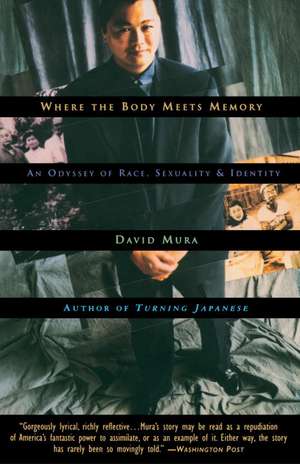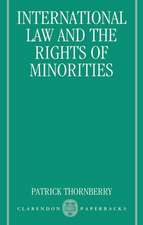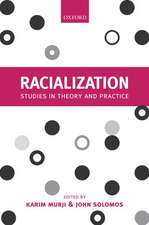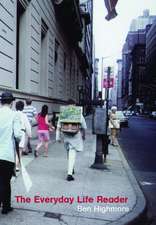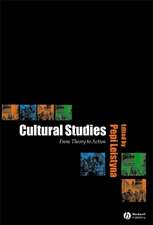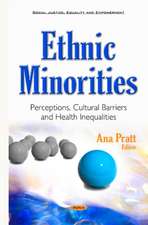Where the Body Meets Memory: An Odyssey of Race, Sexuality and Identity
Autor David Muraen Limba Engleză Paperback – 31 mai 1997
In vivid and searingly honest prose, Mura goes on to suggest how the shame of internment affected his sense of sexuality, leading him to face troubling questions about desire and race: an interracial marriage, compulsive adultery, and an addiction to pornography which equates beauty with whiteness. Using his own experience as a measure of racial and sexual grief, Mura illustrates how the connections between race and desire are rarely discussed, how certain taboos continue to haunt this country's understanding of itself. Ultimately, Mura faces the most difficult legacy of miscegenation: raising children in a world which refuses to recognize and honor its racial diversity.
Intimate and lyrically stunning, Where the Body Meets Memory is a personal journey out of the self and into America's racial and sexual psyche.
Preț: 101.73 lei
Nou
Puncte Express: 153
Preț estimativ în valută:
19.47€ • 20.38$ • 16.11£
19.47€ • 20.38$ • 16.11£
Carte disponibilă
Livrare economică 15-29 martie
Preluare comenzi: 021 569.72.76
Specificații
ISBN-13: 9780385471848
ISBN-10: 038547184X
Pagini: 288
Dimensiuni: 134 x 203 x 18 mm
Greutate: 0.24 kg
Ediția:Reprint
Editura: Anchor Books
ISBN-10: 038547184X
Pagini: 288
Dimensiuni: 134 x 203 x 18 mm
Greutate: 0.24 kg
Ediția:Reprint
Editura: Anchor Books
Descriere
In "Where the Body Meets Memory", David Mura focuses on his experience growing up Japanese American in a country that interned both his parents during world War II. Interweaving his own experience with that of his family and other "sansei"--third-generation Japanese-Americans--Mura reveals how being a "model minority" has resulted in a loss of heritage and wholeness for generations of Japanese Americans.
